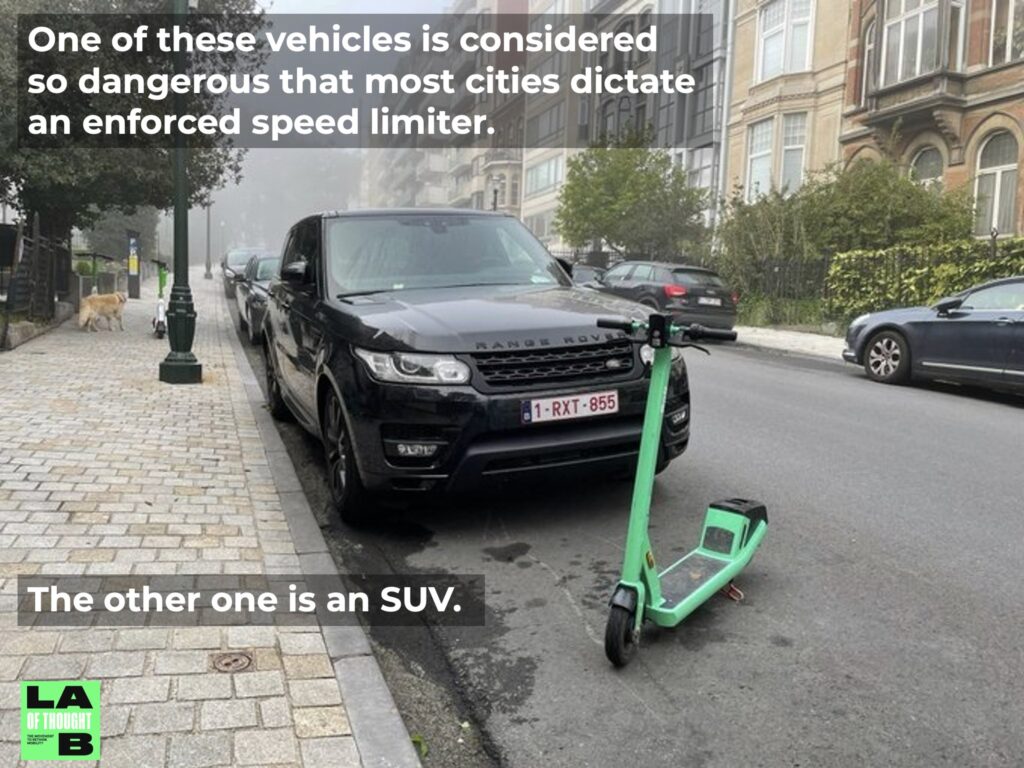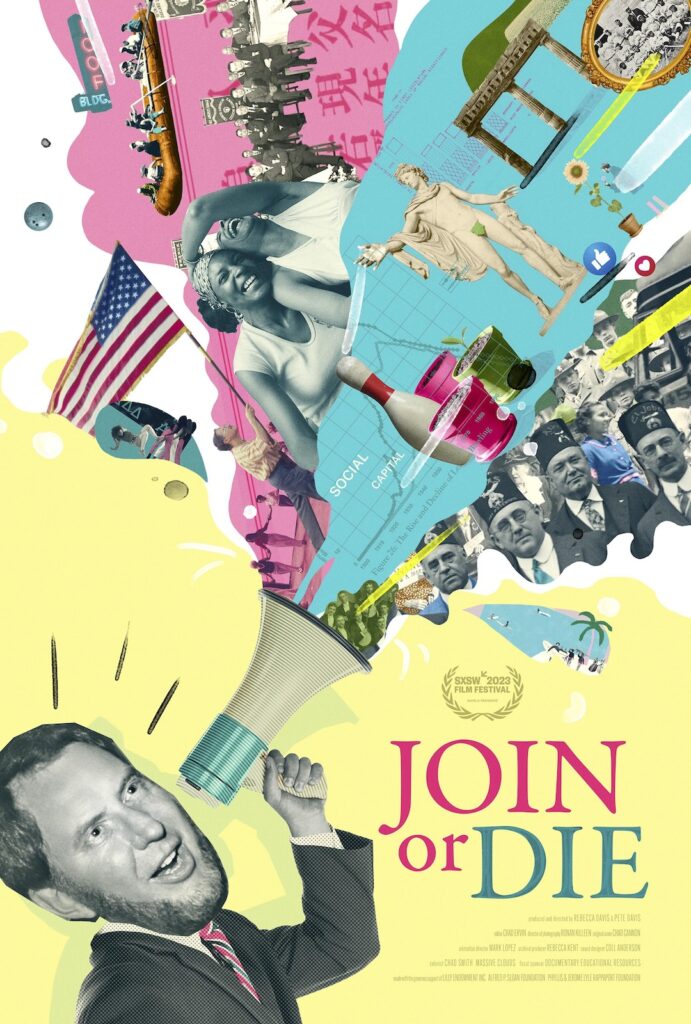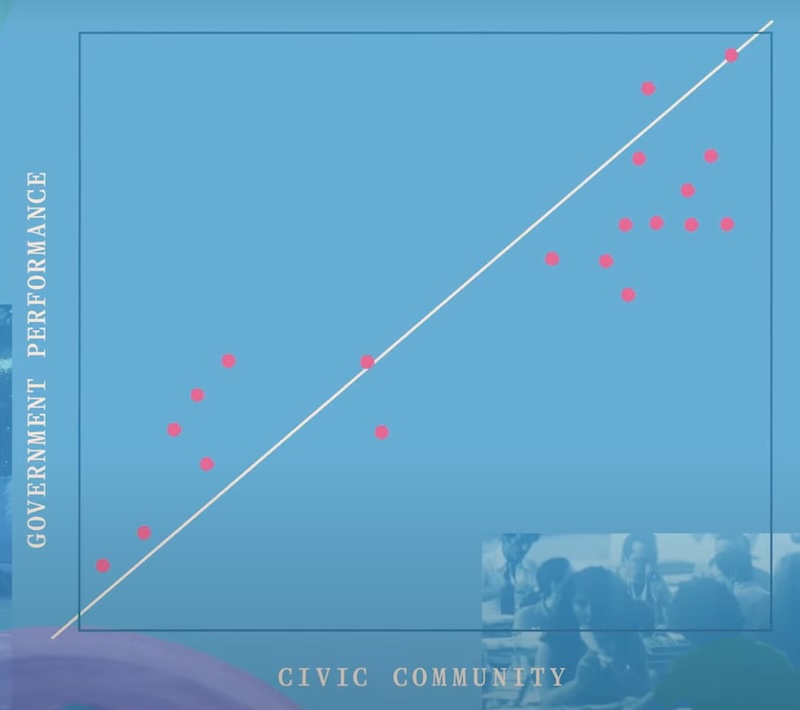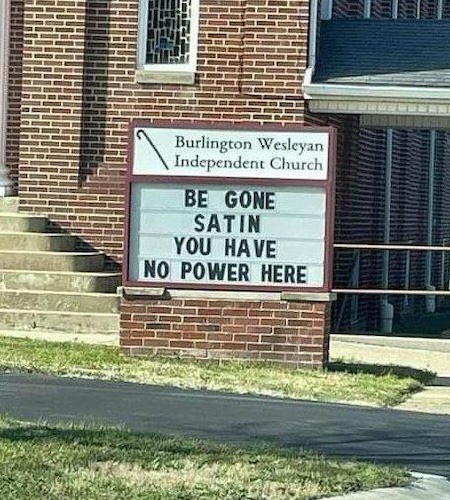
Author: Joey deVilla
Happy Easter, Gen-Z style!
Have a good one, everybody!
📠 Okay boomer, if you’re not sure what rizz is, it’s short-form slang for charisma. See this Wikipedia for details.
Join or Die is a film about why you should join a club — and why the fate of America may depend on it. And I want to get it screened in Tampa — at the Tampa Theatre.
Here’s the trailer for the film:
Join or Die is a feature documentary about community in America, as viewed through the lens of political scientist Robert Putnam’s research and the ideas from his 2000 book, Bowling Alone. The thesis of Bowling Alone is that:
- Social capital, community involvement, and civic engagement have been dropping in the U.S. since the 1950s, and
- How we have become increasingly disconnected from family, friends, neighbors, and social structures.
The title Bowling Alone comes from a friend of Putnam’s who owned a bowling alley. The friend remarked that while bowling was up, bowling leagues and bowling as a group activity had gone down.
The decline of bowling as a group activity mirrored other declines. As Putnam says in interviews featured in the film:
How many times last year did you go to church? Down. How many times did you go to a dinner party? Down. How many times last year did you go to a club meeting?
In barely a couple of decades, half of all the civic infrastructure in America had simply vanished. It’s equivalent to saying half of all the roads in America just disappeared!
Robert Putnam, from the trailer for Join or Die
Here are some “bowling alone” stats, taken from the site for Join or Die:
- 40% decline from the 1970s to the 1990s in the number of Americans who attended even one public meeting on town or school affairs in the previous year
- 60% decline from the 1970s to the 1990s in the amount of picnics Americans attended annually
- 50% decline from the 1970s to the 1990s in the number of Americans who took any leadership role in any local organization
- 35% decline from the 1960s to the 2020s in religious congregation membership
- 50% decline from the 1970s to the 1990s in the number of times Americans attended a from the 1970s to the 1990s in the number of times Americans attended a club meeting the previous year
- 66% decline from the 1960s to the 2010s in union membership
Putnam’s research is all about what makes a society succeed or fail, and he puts forth the idea that it’s about the connections and trust that people make, and the sense of “duty of care” that arise from them. If you get together, get to know your neighbors, build trust not just within a group (“bonding”) but between groups (“bridging”), there better things are — and not just for individuals within the society, but the entire society itself.
Putnam’s been studying this topic for a long time. His 1993 book, Making Democracy Work, was based on his study of regional governments in Italy, which were similar structurally, but different operationally — a difference that went back a whole millennium:
- Northern and central Italy had a society where people were more civic-minded and involved, where people took part in social gatherings and governance, with their social organization being flatter and high-trust. Their system was more democratic.
- Southern Italy, on the other hand, was more hierarchical, with kings at the top, knights below them, and peasants below them. Their system was more autocratic.
(By the bye, the next time some crank tries to tell you that America isn’t supposed to be a democracy, remember that they’re envisioning a southern Italy-like scheme and that they won’t be the peasants in that setup.)
Wikipedia sums up Putnam’s thesis nicely:
Putnam believes that for democracy to be successful there needs to be a level of mutual trust among the citizens and a more horizontal system of governing, all of which Northern and Central Italy has enjoyed. Putnam states in Making Democracy Work that civil society creates wealth, wealth does not create a civil society. The civic nature of Northern Italy and Central Italy dating back to medieval times has caused the region to be prosperous in modern times. Southern Italy, however, with its more feudal nature in medieval times has caused the region to be the origin of the Mafia and has created a less successful region. The Mafia’s hierarchical structure is very similar to Southern Italy’s feudal roots, according to Putnam.
https://en.wikipedia.org/wiki/Making_Democracy_Work#Author_thesis
I want to see this film — don’t you?
Here’s the challenge: it’s not available on streaming platforms and it’s not being distributed in the way more mainstream films are. If you want to see it, you have to contact the filmmakers and ask them to host a screening in your community.
So I did just that. I even suggested that Tampa Theatre would be a great venue for it.
Getting a screening here in Tampa will take more than just my effort, and it may take some money. I’m going to need help with this one, and if you’re interested in helping, drop me a line!









